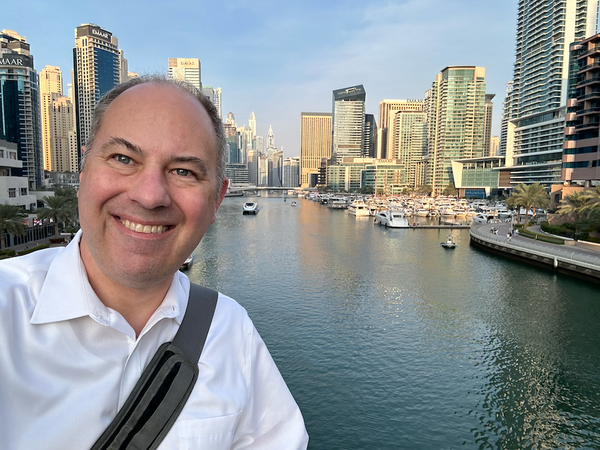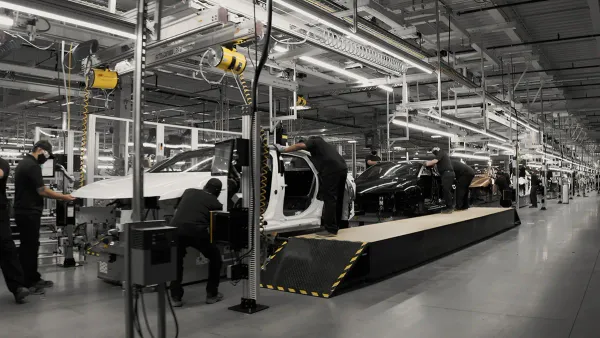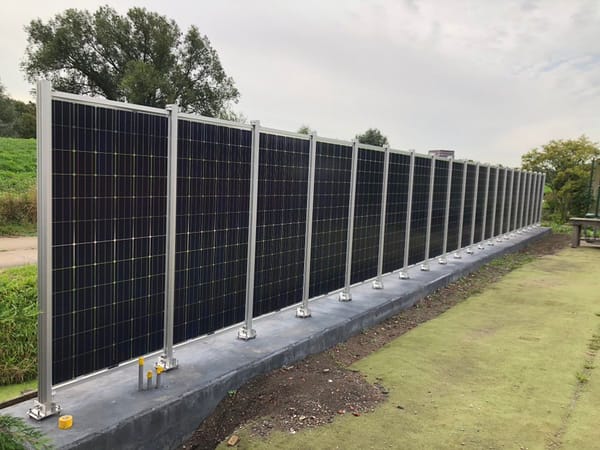Smoke and finance: The seen and unseen of climate change
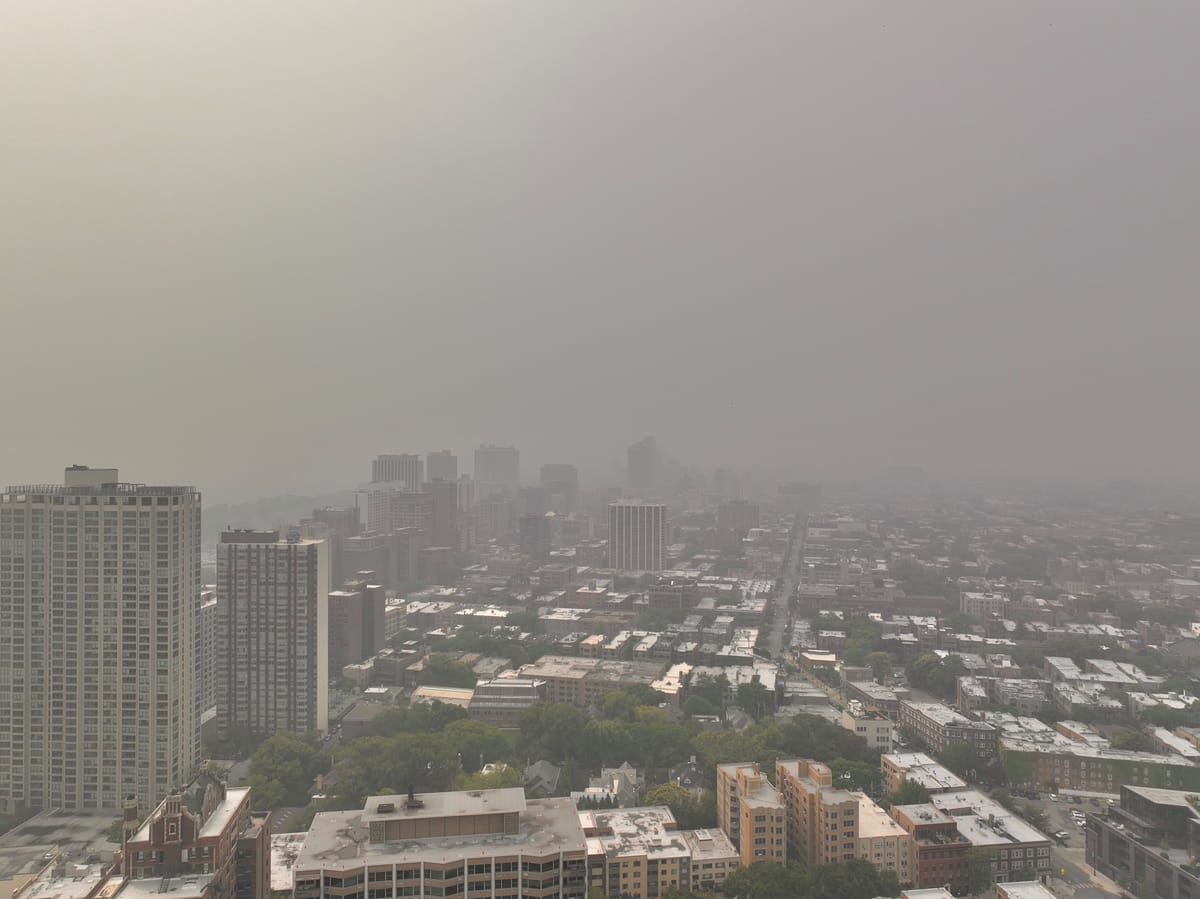
@snapshots.by.jacob)Good Afternoon!
Today I get into smoke and global finance. Both things are likely to get you choking one way or another, but one way or another we’re going to have to address both of them if we’re going to take care of the whole climate change thing.
Global finance is an interest of mine, since I believe the world’s financial mechanisms are as responsible for our climate as anything else. After reading today’s newsletter, I’d like to know from you: Is this something you’d like to learn more about? Did I do an adequate job of explaining things? Please drop me a note!
-Mike
1. Canada and Texas: Candidates for Hell’s Kitchen on Earth
It smells like campfires in my hometown of Chicago today, as a haze has descended on the city, lowering visibility to about one kilometer and giving the city the worst air quality in the world as a result of Canadian wildfires burning hundreds of miles away. The smoke is intense enough that it’s now traveled more than 2,000 miles to Ireland and England. Meanwhile, a “heat dome” has settled over parts of Louisiana, Texas, and Northern Mexico with temperatures swelling over 110-degrees Fahrenheit, and is expected to expand east to other parts of the American South. A group of climate scientists found the heat dome was five times more likely to occur in June (this sort of heat doesn’t usually hit Texas for at least another month) because of climate change. The early season Texas heat wave is similar to India’s 115-degree heat wave in April, which scientists also now ascribe to climate change, and say is likely to be the new normal: complete with large scale deaths from heat exhaustion.
As Texas’ heat and air conditioning demand has ramped up, the state’s large solar and wind installations have delivered, satisfying 20% of electricity demand every afternoon last week. Solar capacity has doubled in Texas since January 2022 and right on time, state Republicans are pushing measures to kneecap renewable growth in favor of oil and gas. Another industry that benefits from solar growth? Sheepherders who maintain the grass around solar panels.
One of the fires in British Columbia threatened a carbon offset project, the BigCoast Forest Climate Initiative, reports Bloomberg. In 2018, logging company Mosaic agreed to set aside 40,000 hectares of forest to sequester carbon. For each ton of carbon sequestered, the project issues a credit, for a total of 1.4 million credits so far, the equivalent of Sierra Leone’s annual emissions. The project has a 15.5% buffer pool, credits that are unsold and set aside in case of natural disaster. So far, the wildfires have burned 100 hectares, 0.25% of the total.
In other news, the surface of the oceans are hotter than ever before.
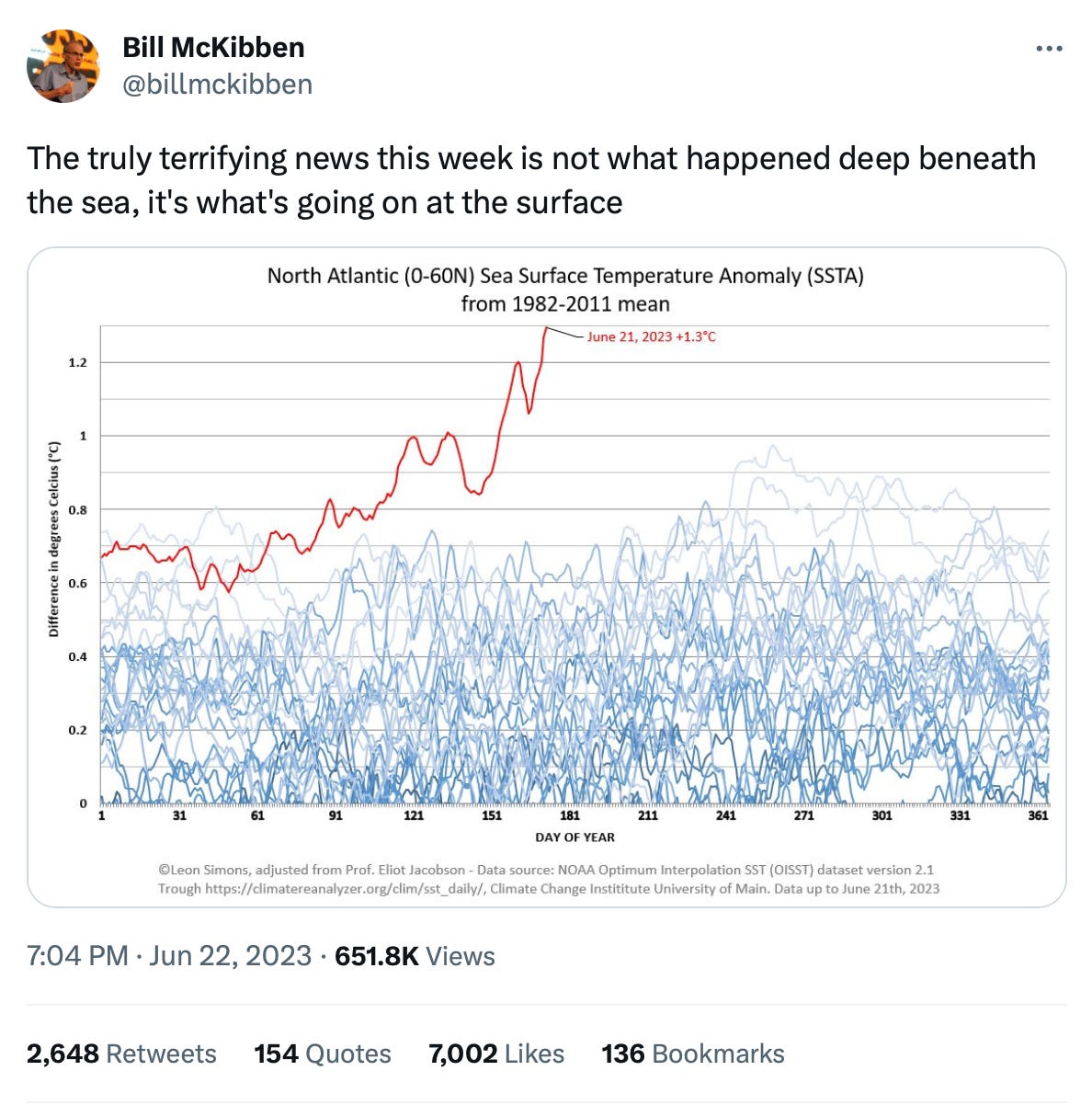
2. Climate comes for the global finance system
The global financial system we live with today was largely created in Bretton Woods, New Hampshire in 1944. The system, which created unprecedented open global markets enforced by top-down-managed financial institutions backed by the U.S. dollar, precipitated the U.S.-controlled World Bank, which provides development financing to poorer countries, and the European-controlled International Monetary Fund (IMF), which supports poorer countries' currencies and central banks. For the last 80 years the U.S. has played a leading role in managing both the World Bank and IMF since the dollar is the strongest and most ubiquitous currency in the world – almost every nation uses dollars to settle international sales.
Developing nations have long chafed against the World Bank-IMF system, since they usually have little say in determining the terms offered by the banks, and the boards and executives are mostly made up by residents of G-7 countries. Over the last ten years, challenges to the World Bank-IMF system have increased as poorer countries (the “Global South”) have argued that the cost of climate change-driven disasters along with the need to transition to green energy outstrips any possible rate of return the World Bank would find acceptable.
In short, climate change is threatening to break the global financial system outside of the West, and developing countries are demanding a change.
Hoping to head the problem off at the pass, last week French President Emanuel Macron hosted the Summit for a New Global Financing Pact, a meeting of 50 global leaders in Paris to discuss how to improve global finance – in particular as it relates to climate change. While the meeting produced no agreed solutions, it did consolidate demands from the Global South who are dealing with crushing levels of debt.
Although France’s President Macron convened the conference, the strongest push came from tiny Barbados’ Prime Minister Mia Mottley, who championed the “Bridgetown Initiative”, a kind of Marshall Plan for developing countries meant to provide more and lower cost financing to mitigate climate change. The Initiative, backed by dozens of developing nations, came to prominence at last December’s COP27 climate conference in Egypt and has only gained interest as the Global South’s need for climate mitigation financial support gets more obvious.
Although there was no official agreement or plans drawn up at the conference, consensus centered on three the Bridgetown Initiative’s tent poles:
- The World Bank and other global lending institutions like the African Development Bank need to provide up to $100 billion of emergency funding for countries dealing with climate disasters, like hurricanes, drought, and rising sea levels.
- In 2009 developed nations pledged $100 billion a year to climate mitigation starting in 2001, so far only $83 billion has been provided. That money needs to be delivered.
- Developing countries need help getting out of the “climate debt trap” where disasters occur, in the form of paused debt repayment or refinancing following climate disasters.
Although the agenda for this December’s COP28 in Dubai does not include climate mitigation financing, the results of last week’s finance conference makes it likely that COP28 will address some of its aspects somehow.
Sources: Deutsche Welle / Reuters / Bloomberg / AP / Al Jazeera / Politico
Other Things Happened
- John Goodenough, who refined the lithium-ion battery so that it was light and didn’t catch fire, died Sunday at age 100.
- After more than $200 billion in profits in 2022, the five biggest oil and gas companies decided to return most of the windfall to shareholders, rather than renewables or more drilling.
- China will install twice as many chargers in 2023 as the rest of the world. There’s little news on how reliable they’ll be though.
- The Feds offered subsidies to transit systems for electric buses: They got 475 proposals seeking $8.7 billion. They could only afford to dole out $1.7 billion to 130 applicants.
You made it to the end! Here’s an unreal video of a rebar factory in Japan complete with soothing music.


